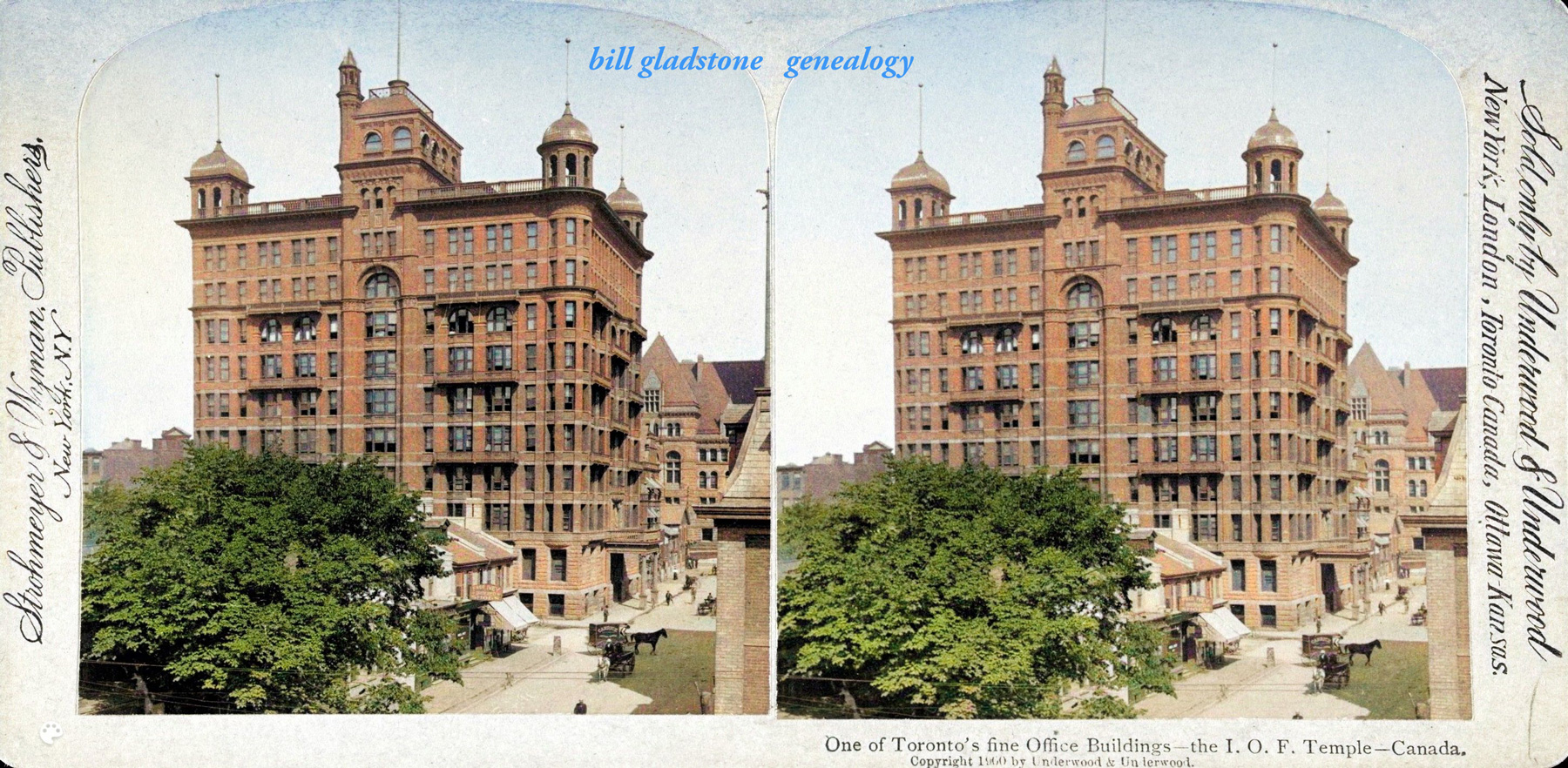Deputy Magistrate Kingsford of Toronto had his hands full one October day in 1900 when two Jewish butchers and a Jewish baker appeared before him, all charged with violating the Lord’s Day Act by pursuing their callings on a Sunday.
One of the butchers was actually Rabbi Isaac Helpern, spiritual leader of the Austrian Jewish Synagogue on Chestnut Street. Halpern swore that all the people who had been observed leaving his shop with packages of meat on Sunday had actually purchased them on Saturday night and that he had merely kept them in his ice chest overnight. He was fined $5.
The other butcher, A. Gauffman, denied all the charges against him so vigourously that the judge surmised he could not understand English and arranged for an interpreter. Still, he maintained his denial. As before, the fine was $5.
“He threw his hands palm upwards in the air and almost wept when the fine was announced,” the Toronto Star reported.
The third accusant, baker Harry Rosenbes of York Street, pursued a more respectful attitude towards the law and fell upon the mercy of the court.
Rosenbes explained “that as Saturday was the Jewish Sabbath and that Monday and Tuesday were religious holidays, on which it was unlawful to purchase bread, he had been forced to extend his deliveries into Sunday.
“He said he had worked from sundown Saturday until midnight, but that there was such an immense quantity of bread that he had been unable to deliver it all. He was warned to secure more help on Saturday night in future, and the case was withdrawn.”
These cases involving violations of the Lord’s Day Act were by no means unusual. Many people still recall how stringently the act was applied in Toronto in the 1920s and 1930s, when even the most innocent child’s play could constitute a serious breach of the law. One of my cousins retains a vivid memory of a baton-swinging policeman chasing himself and his friends from a city park for the dangerous infraction of playing ball on a Sunday.
Jack Switzer, an Alberta Jewish historian, recently wrote an article about a memorable application of Lord’s Day legislation in Calgary in 1905, shortly before the territory became a Canadian province. The incident focused on Harry Bell, a 14-year-old Jewish newsboy in Calgary who was prosecuted for hawking newspapers on Sunday.
Bell had been selling the previous day’s Winnipeg Free Press which had just arrived by train. He went to trial in July of 1905, only weeks before the province of Alberta was born. He was charged with violating statutes that had been instituted by British King Charles II in 1675.
The magistrate gave a careful reading of the law, however, and ruled that since he wasn’t a “tradesman” and had not been engaged at his “ordinary calling,” he could not be found guilty. As Switzer noted in the Journal of the Jewish Historical Society of Southern Alberta, public reaction to Bell’s acquittal was quite favourable. “The effort to make an example of a 14-year-old boy . . . is calculated to bring the forces behind the prosecution into disrepute,” pronounced the Calgary Herald. “The whole thing is too comical to be received seriously.”
But trivial prosecutions continued, Switzer noted, such as that against Calgary grocer Isadore Guttman, who in 1918 was fined $10 for selling candy on Sunday. Such penalties were typically doled out across Canada for decades until the Supreme Court struck down the Lord’s Day Act in 1985.
As one observer noted, the Act “created a climate hostile to, and gave the appearance of discrimination against, non-Christian Canadians” and so “could not be deemed justifiable in a free and democratic society such as Canada.” ♦
© 2004





